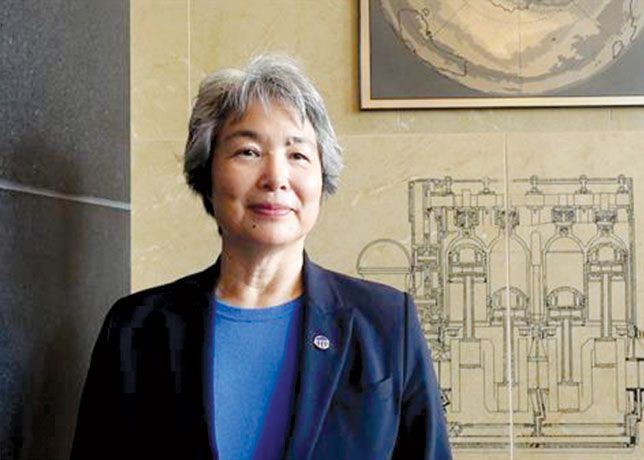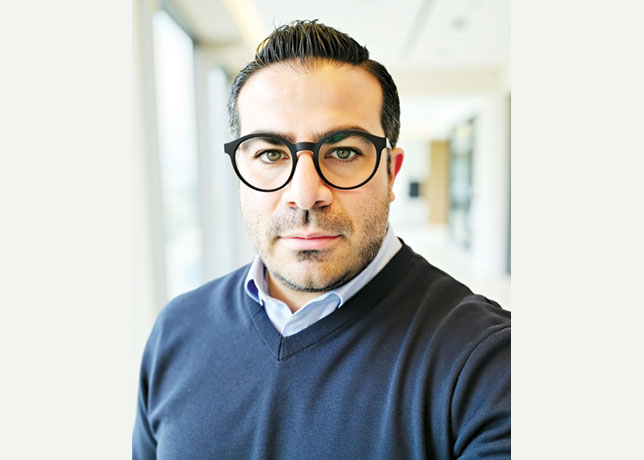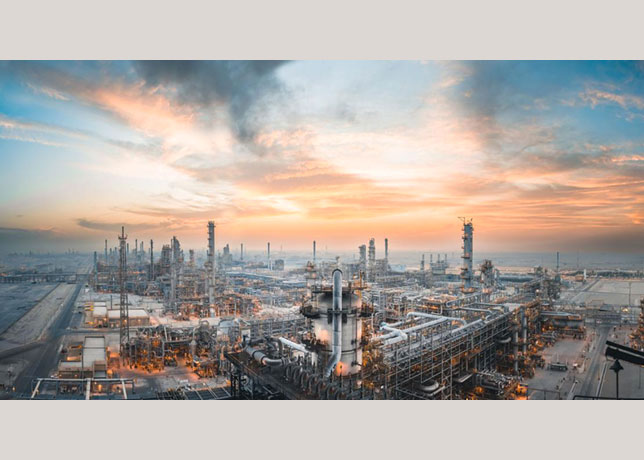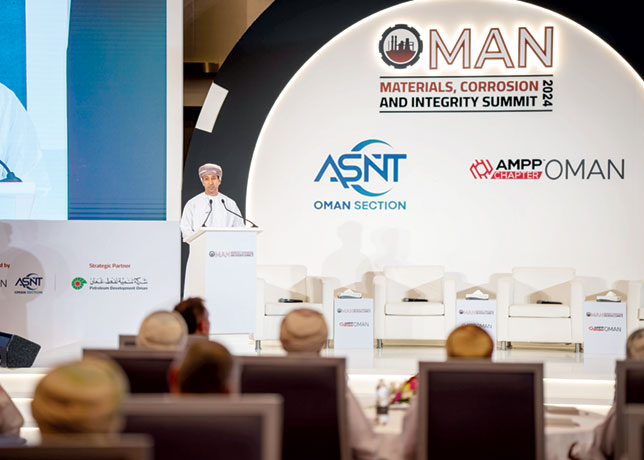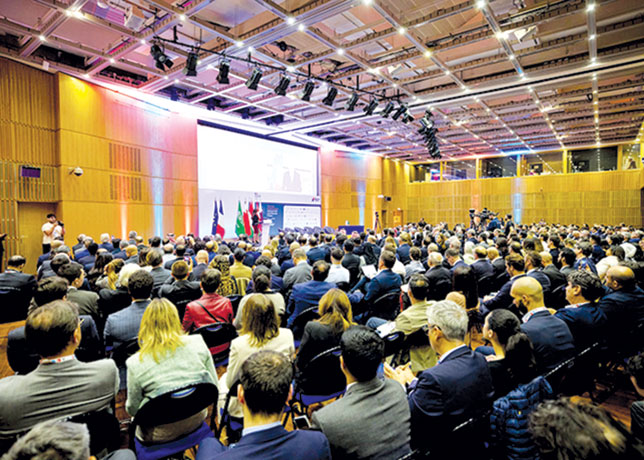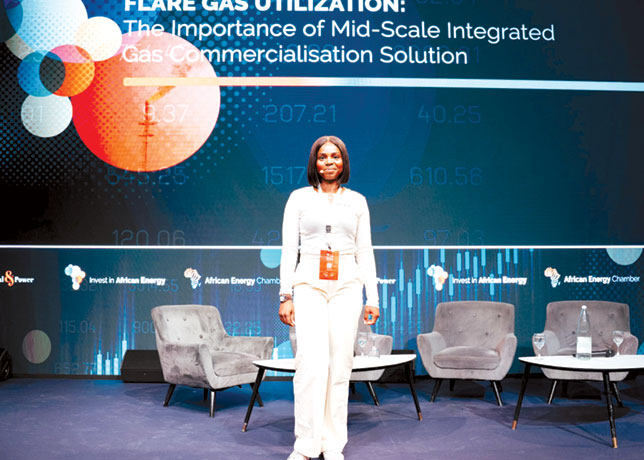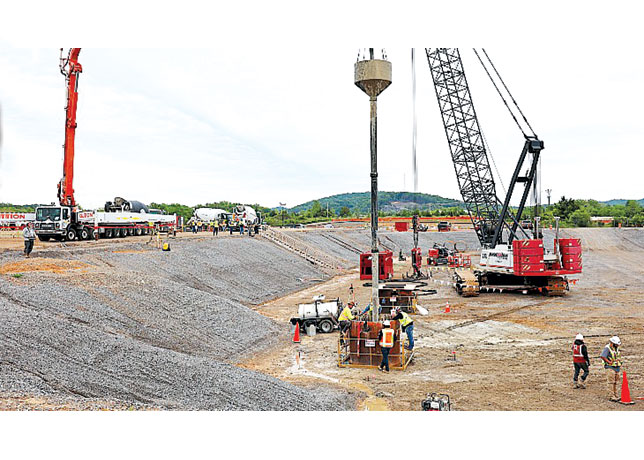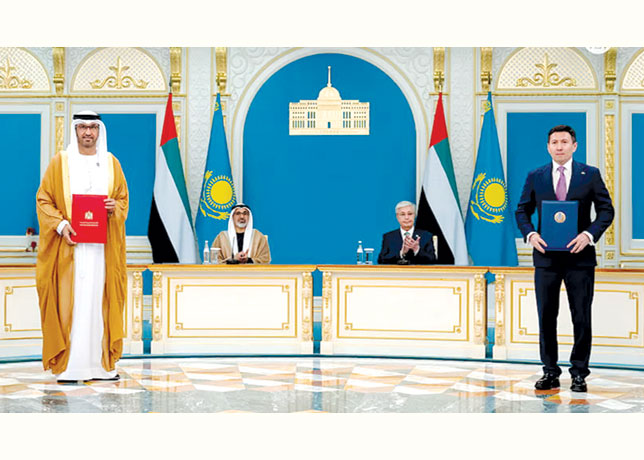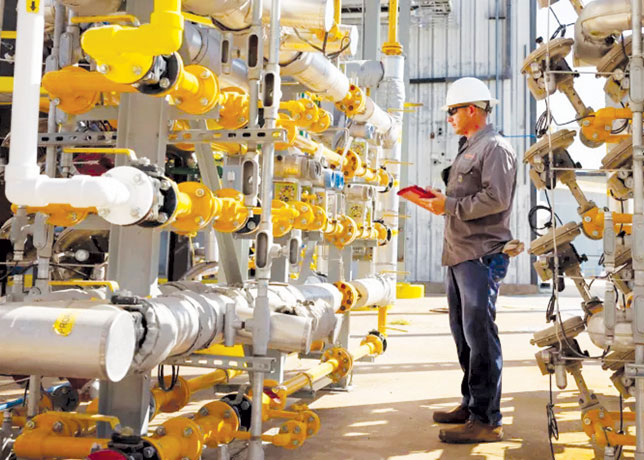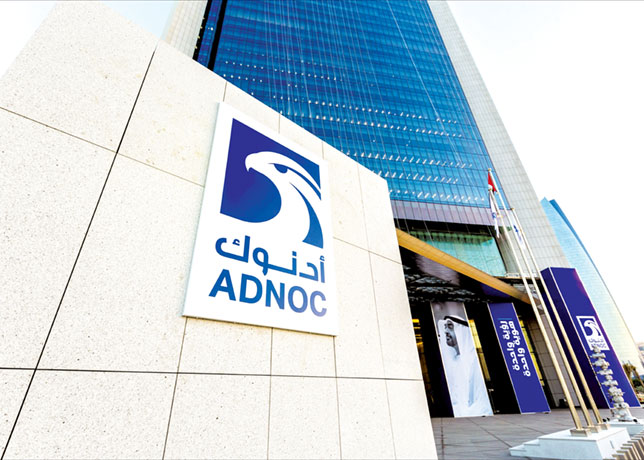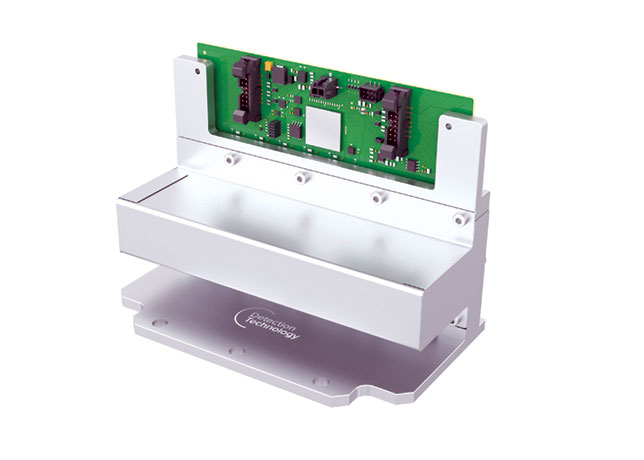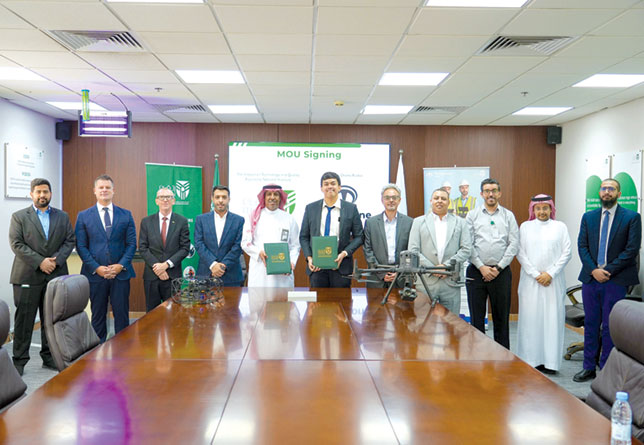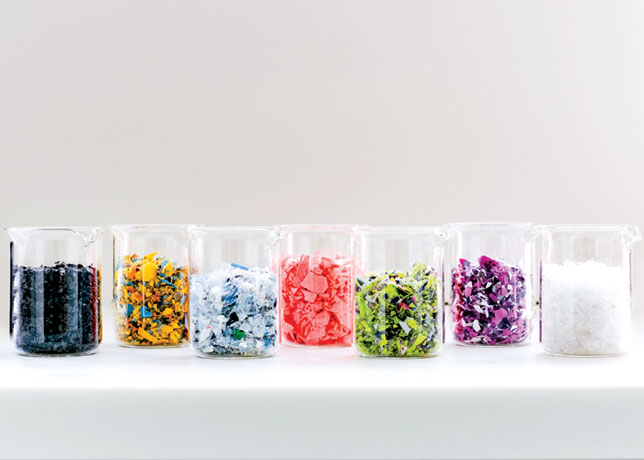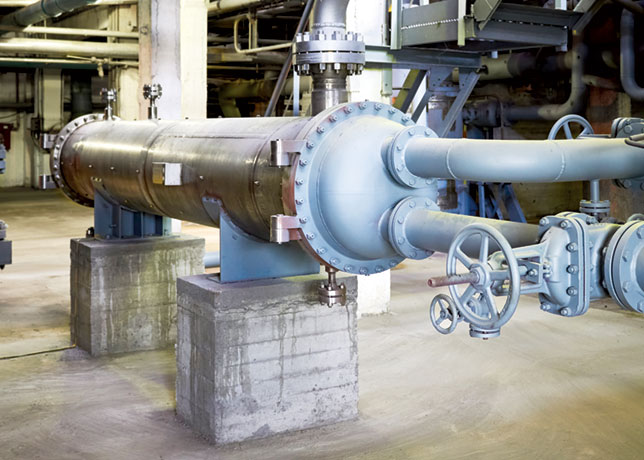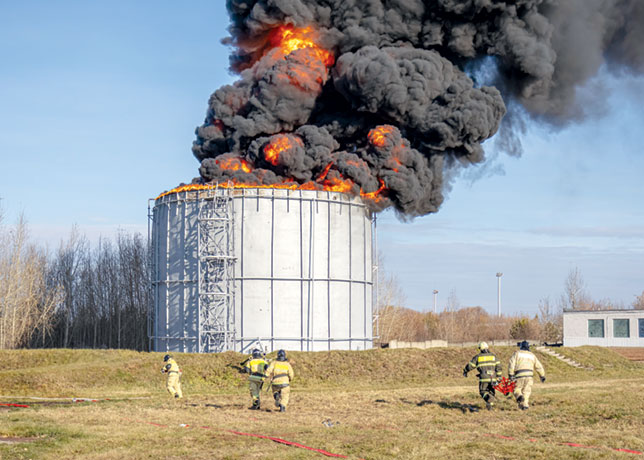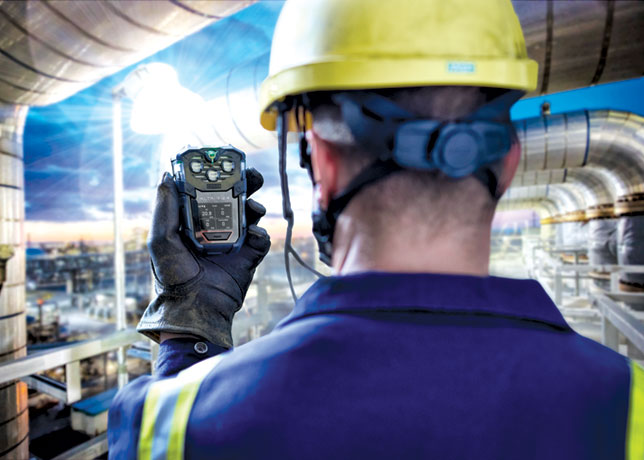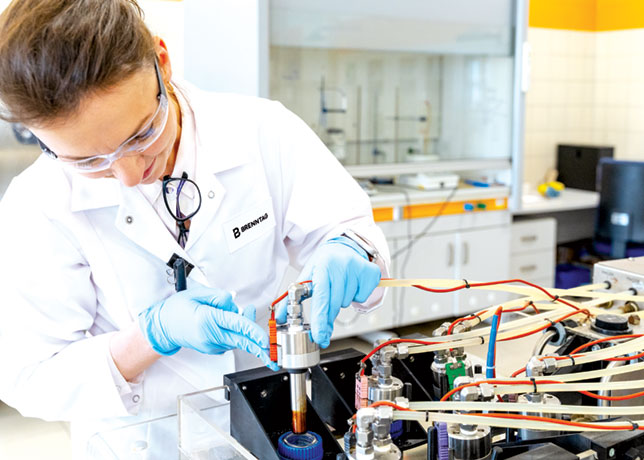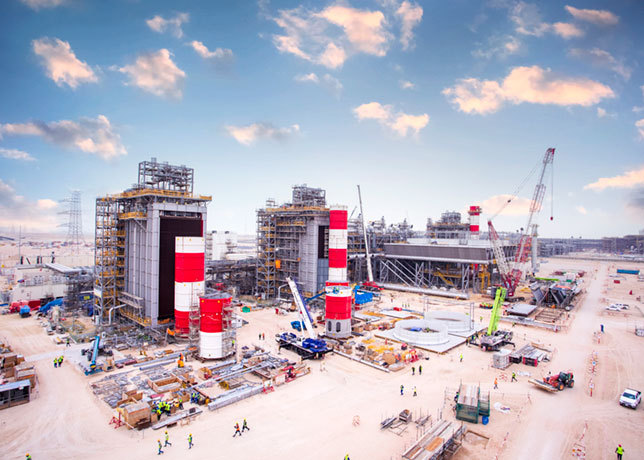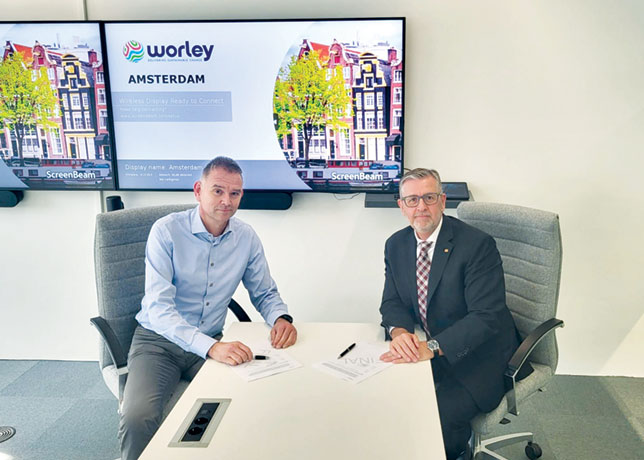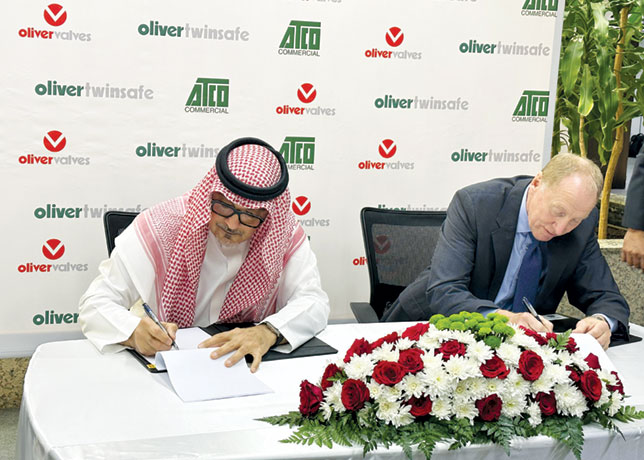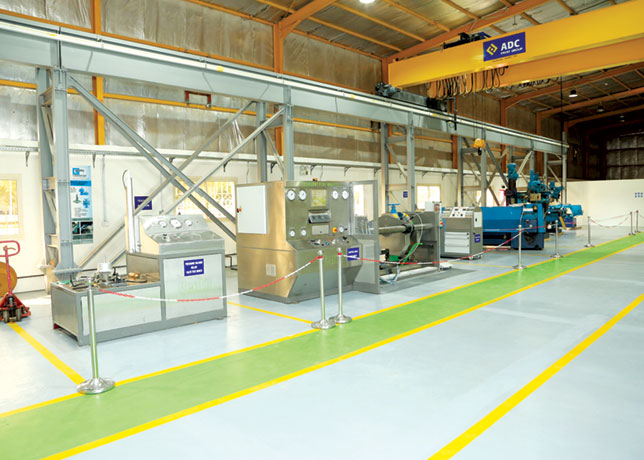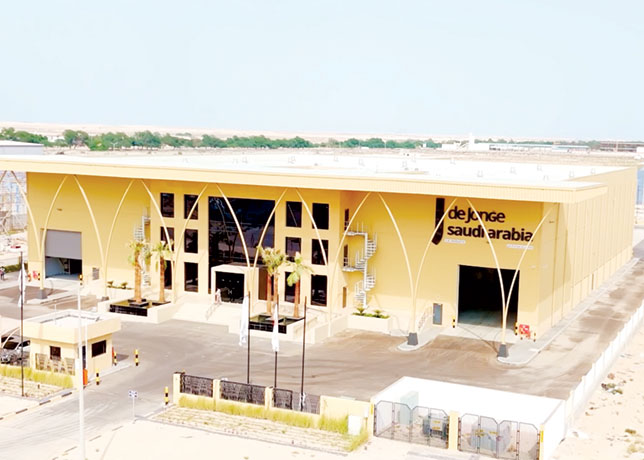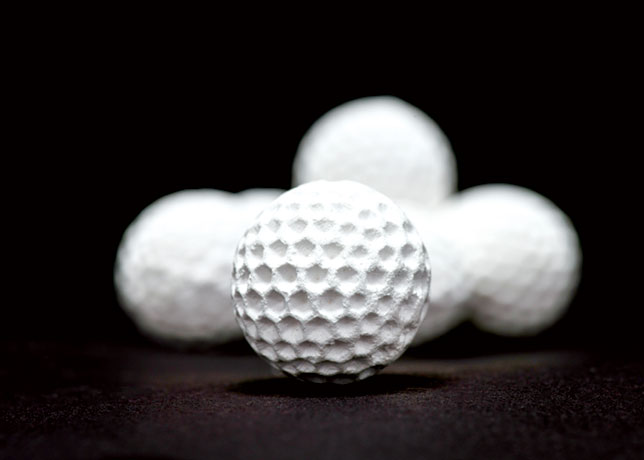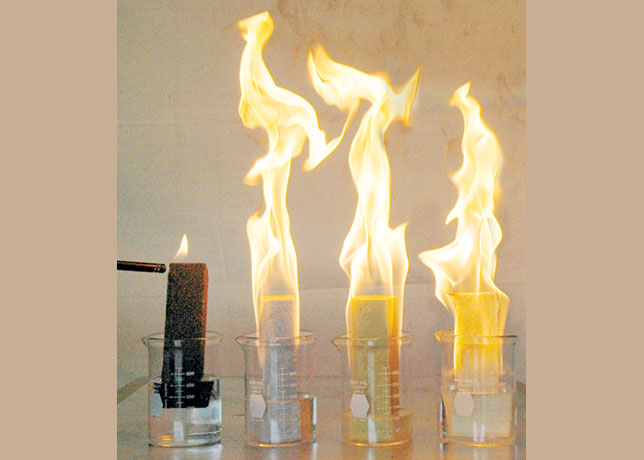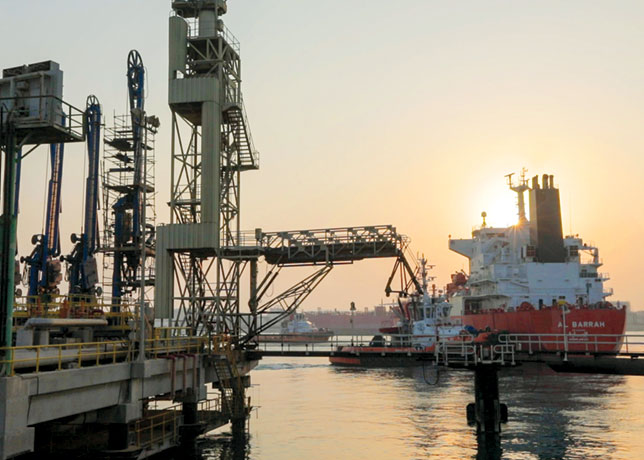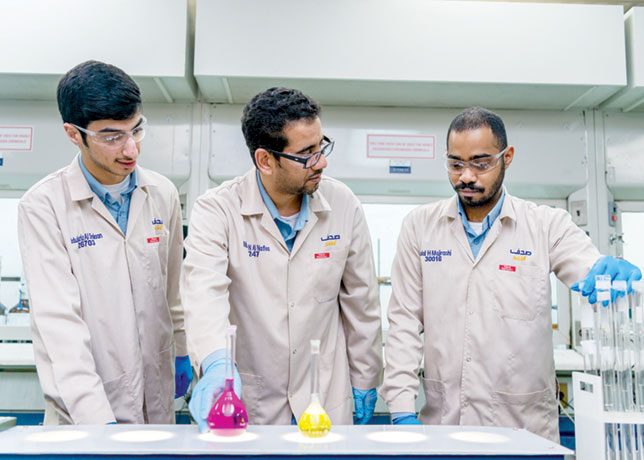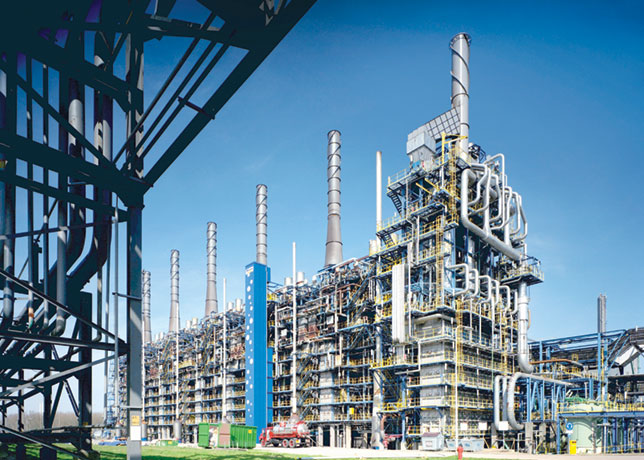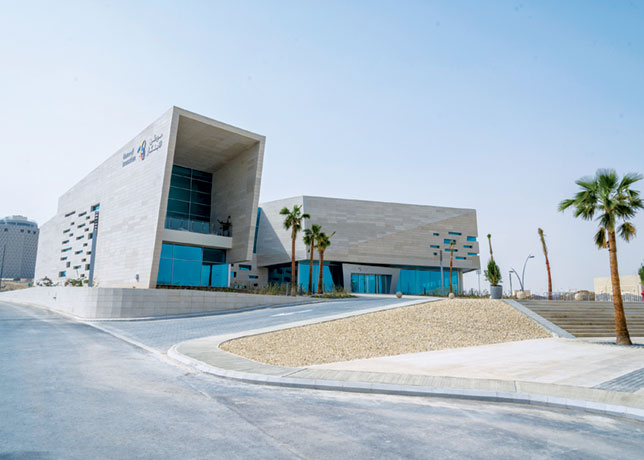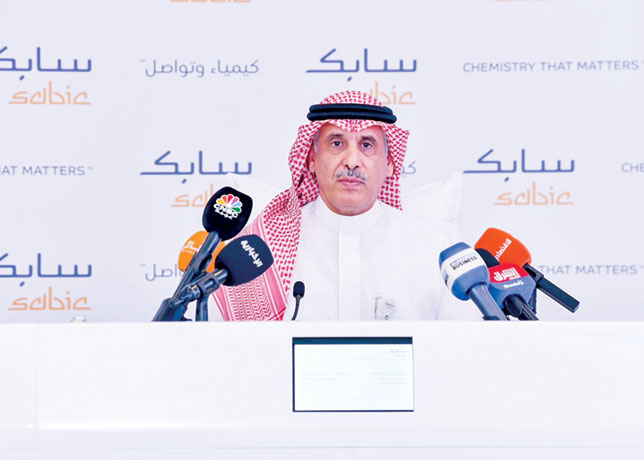
 Amiantit after-sale service ... advice and support offered at every stage of a project
Amiantit after-sale service ... advice and support offered at every stage of a project
The Saudi Arabian Amiantit Group of Companies, an industry leader in the manufacture of quality pipe products due to its ownership and development advanced pipe technologies, is serving the needs of regional energy sectors by supplying pipes made from glass reinforced epoxy (GRE).
The oil and gas industries have long been using metallic materials for their piping systems, which are vulnerable to internal and external corrosion most especially in the harsh environment of the Middle East. Corrosion has been a prevalent problem not only in this field of application but also in some other areas where metallic piping systems are used. This factor alone costs users of metallic piping a considerable amount of money for maintenance and replacements.
Amiantit pipe systems made from glass reinforced epoxy offer a perfect solution to these problems because they are internally and externally non-corrosive and virtually maintenance-free, with the additional advantages of being lightweight and easy to install, and therefore are economical in both the short and long terms.
Amiantit GRE products are made of high-strength fiberglass filaments and corrosion-resistant epoxy resin. A precision filament-winding process integrates these materials into one unitised high-strength piping component.
Amiantit Group companies manufacturing GRE products in the Middle East are Bondstrand Ltd, Dammam, Saudi Arabia, Bondstrand-Kuwait Ltd., Amiantit Epoxy Pipe Production Plant, Dammam, Saudi Arabia, and Composite Pipes Industry (CPI) W.L.L, Sohar, Oman. The four companies have a combined total annual plant capacity of 11,100 metric tonnes:
Prior to the presence of these regional manufacturing facilities, GRE products had to be imported either from the United States or Europe. With the establishment of these companies, Amiantit introduced high-technology GRE products and services to the rapidly growing high-performance pipe system market in the Kingdom of Saudi Arabia and the neighbouring GCC states. Since their inception, Amiantit regional manufacturing facilities have supplied more than a million linear metres of GRE pipes and thousands of GRE fittings and pre-fabricated spools.
Amiantit GRE pipe systems have been utilised by Saudi Arabian Oil Co. (Saudi ARAMCO) in various projects for a number of applications including fuel lines, battery room piping, fire protection lines, sea water cooling systems, chemical process, drainage systems (oily sewer, effluent disposal), chlorinated water lines, gas gathering lines, marine chlorine injection, and water injection systems, to name a few.
Other agencies in Saudi Arabia which have Amiantit GRE products installed in their facilities include: Arabian Oil Company (AOC) in Khafji, International Airports Projects, King Abdul Aziz University in Jeddah, Ministry of Agriculture and Water, Ministry of Defense and Aviation, Royal Commission for Jubail and Yanbu, the various companies of Saudi Arabian Basic Industries Corp. (SABIC), Saline Water Conversion Corporation (SWCC), Saudi Electric Company (SEC), and Water and Sewerage Directorate (WSD) agencies. In other GCC States, Petroleum Development Oman (PDO), Bahrain Petroleum Co., Gulf Petrochemical Industrial Co., Qatar General Petroleum Co., have used Amiantit GRE in a number of their projects.
Cost-effective alternative
Amiantit GRE pipe systems (manufactured and marketed under the trade names Bondstrand and Amipox) have been proven over many years to be the best means to move fluids and are the answer to corrosion problems and a cost-effective alternative to metallic piping systems.
Amiantit GRE piping systems have served dependably in virtually every application where resistance to internal and external corrosion is required at reasonable costs. Designed for a minimum service life of 20 years, Amiantit GRE products are suitable for above-ground, underground, and submerged applications.
A comparison of costs of GRE piping system with conventional steel mechanical system clearly shows savings during the service life of the piping system. Though initially Amiantit GRE may cost a little more than steel, savings can be attained partly in terms of pre-fabrication and installation and greatly in terms of maintenance and repairs.
Life cycle costs
Amiantit GRE pre-fabricated spools are specially assembled or fabricated combinations of pipes and fittings which are intended to provide custom-built products for specific requirements. These shop-prefabricated spools allow for in-plant hydrotesting prior to delivery at the job site and lessen the number of field joints assembled on site, thus resulting in lower installation costs and shorter installation period. In contrast, similar spool configurations of steel or metallic materials require that they be done in the field or at the job site, resulting in additional installation cost and time.
Amiantit GRE products are lightweight (1/6 the weight of steel pipe) and therefore easy to install, a factor which, when compared to steel piping materials, allows for reduced manpower and equipment requirements, with a considerable reduction of installation time and cost.
With its smooth inner pipe surface, Amiantit GRE offers very low resistance to flow, higher flow capacity, and allows the use of smaller-diameter pipes, factors that lead to reduced energy costs for pumping.
A great part of cost effectiveness in the use of GRE products is in the maintenance and repair of the pipeline system.
A GRE pipe system can handle hundreds of corrosive chemicals that steel piping materials cannot. Being highly resistant to corrosion, erosion, and UV radiation, Amiantit GRE pipes result in reduced maintenance costs. In addition, GRE does not collect any stray ground currents which may corrode expensive pumps, valves and other equipment connected to the system. In contrast, steel piping materials are not corrosion resistant and therefore need to be provided with protective coating and lining.
Also, there is a need to install cathodic protection of the pipeline in order to monitor and/or arrest corrosion. This is a very costly provision, yet it gives little assurance that corrosion will not occur in the pipeline and in many cases the end result is very expensive replacement of the entire pipeline or, at least, a lengthy portion.
Piping and jointing systems
Amiantit GRE pipe comes in various types and jointing systems for different applications. GRE pipe products are classified according to series, the choice of which is dependent on the application for which the pipeline is intended. The jointing system depends on the pipe series and is classified into adhesive, mechanical, flanged, or laminated. Laminated joints (butt-and-wrap) are applicable to plain end pipes and generally used for field adjustments when adhesive-bonded joints cannot be accommodated, and for repair purposes. Suggestions and recommendations on the appropriate series and joint system are provided to clients to suit their application requirements.
Advice at every project stage
In support of its high quality GRE products, Amiantit offers technical assistance and advice at every stage of the project from planning to installation, including system selection, GRE pipes: quality assurance combined with cost efficiency
pipe design, calculations, and engineering. Field service support and supervision are available at the installation stage, provided by highly-qualified field engineers and representatives to assist the client’s nominated contractor. In addition, field service engineers provide training to the client’s field crew on GRE installation procedures and... techniques.
Quality assurance
The manufacture of GRE pipe requires strict control of the materials and the processing parameters to maintain product consistency and ensure the reliability for which Amiantit is renowned. Amiantit GRE plants operate a thorough quality assurance and quality control program which incorporates raw materials inspection, vendor certification, in-process inspection, finished product inspection, and testing and analysis of results. Statistical process control also allows for detection of potential product upsets.
All Amiantit GRE products supplied to clients are subject to testing and verification by both internal quality control and clients’ representatives. All tests and inspections are carried out according to applicable ISO and ASTM standards in order to confirm that the items to be delivered conform to and fully meet client and project requirements.
In addition to GRE, Amiantit produces glass reinforced polyester (GRP) products at a number of Amiantit manufacturing facilities around the world, including Amiantit Fiberglass Industries Ltd (AFIL) in Dammam where a new industry record was achieved with the production of a four meters diameter pipe designed and manufactured using Amiantit-owned Flowtite technology.
AFIL also scored another industry first in the Middle East by designing and manufacturing fiberglass reinforced double wall tanks, which can effectively replace steel double wall tanks due to their strength and resistance to corrosion. Fiberglass double wall underground fuel storage tanks can be used to hold gasoline, aviation fuel, gasohol (a mixture of 90per cent gasoline and 10 per cent ethanol), jet fuel, diesel fuel, potable water or waste water at ambient underground temperatures, or fuel oil at temperatures not exceeding 65 degrees centigrade.
Proof of Amiantit’s commitment to quality is exhibited by worldwide approvals and certifications by various companies and certifying organisations which include ISO 9001 for Quality Management Systems, National Sanitation Foundation (NSF) for potable water, Factory Mutual (FM) for firewater, and API 15LR for oil and gas applications.
Amiantit Group’s parent is the Saudi Arabian Amiantit Company, which was established in 1968 as a limited-liability company. Today, Amiantit is a joint stock company, listed on the Saudi Stock Exchange, and has expanded its business activities through partnerships with renowned international companies as well as establishing its own business entities, proprietary products and technologies. To date, Amiantit Group has a presence in countries all around the world with 37 production plants, 11 technology companies, and several trading and service companies.
In the pipeline sector, Amiantit has supplied hundreds of thousand kilometers of pipes to various projects in the Kingdom of Saudi Arabia and the Gulf Area, as well as to other countries in the Middle East through several wholly-owned and joint venture companies in the region.
Amiantit Pipe Systems manufacture pipe products for a variety of applications and market segments, ranging from utilities, industrial plants, marine and offshore, military installations, service stations, and oil field production.







